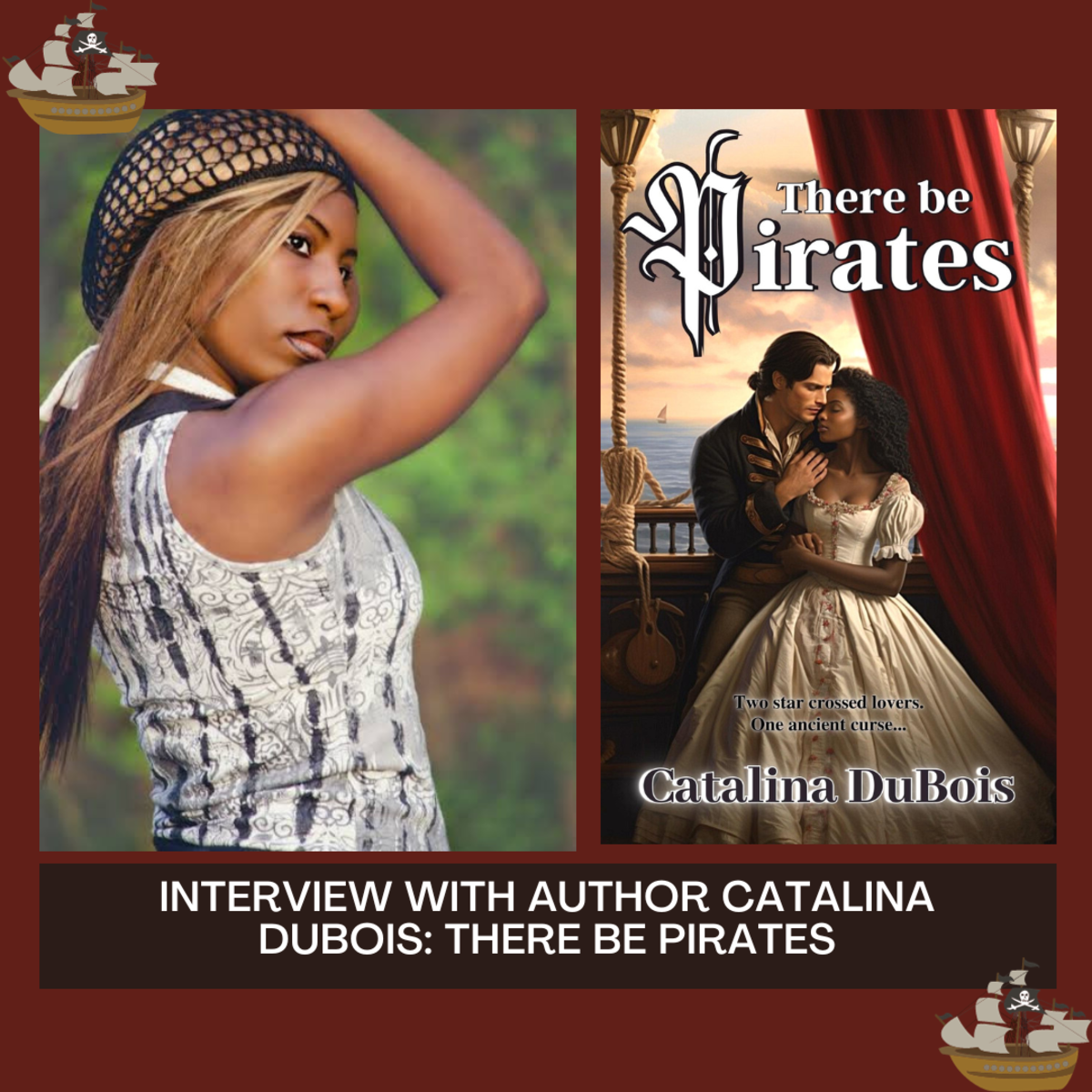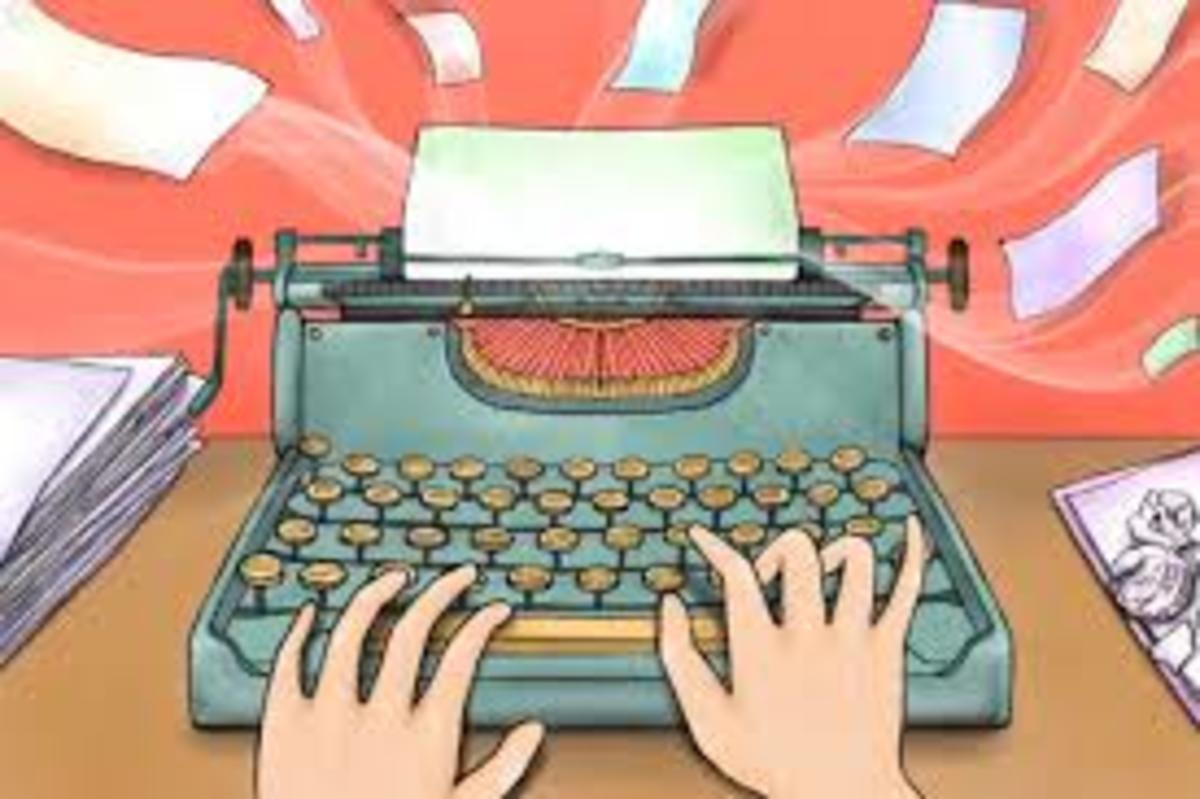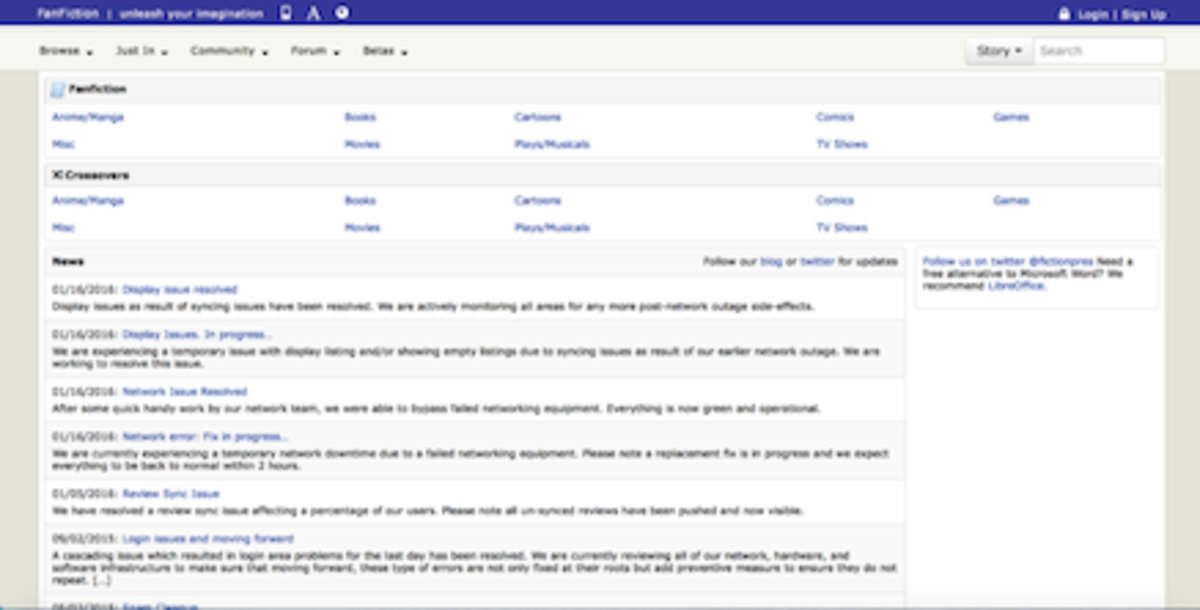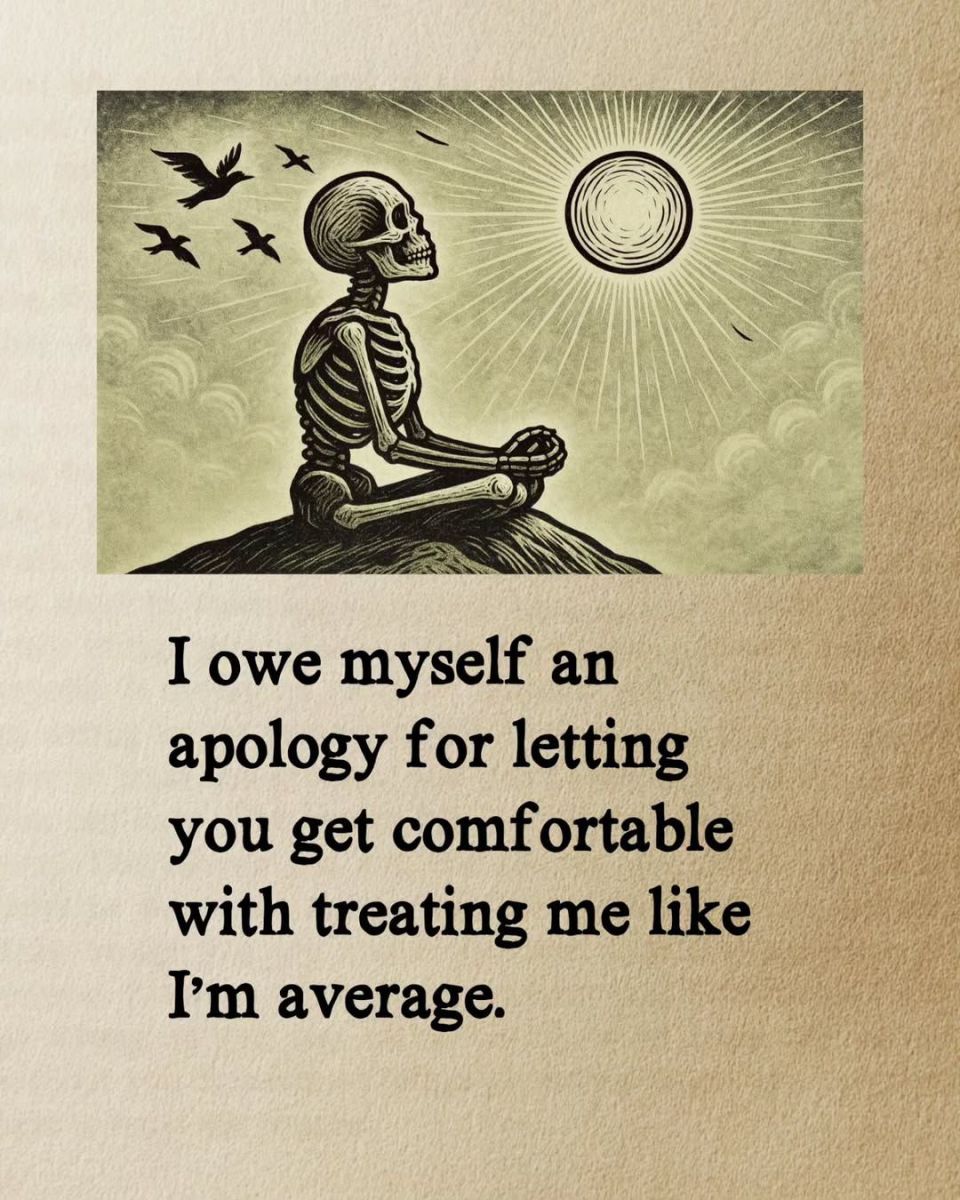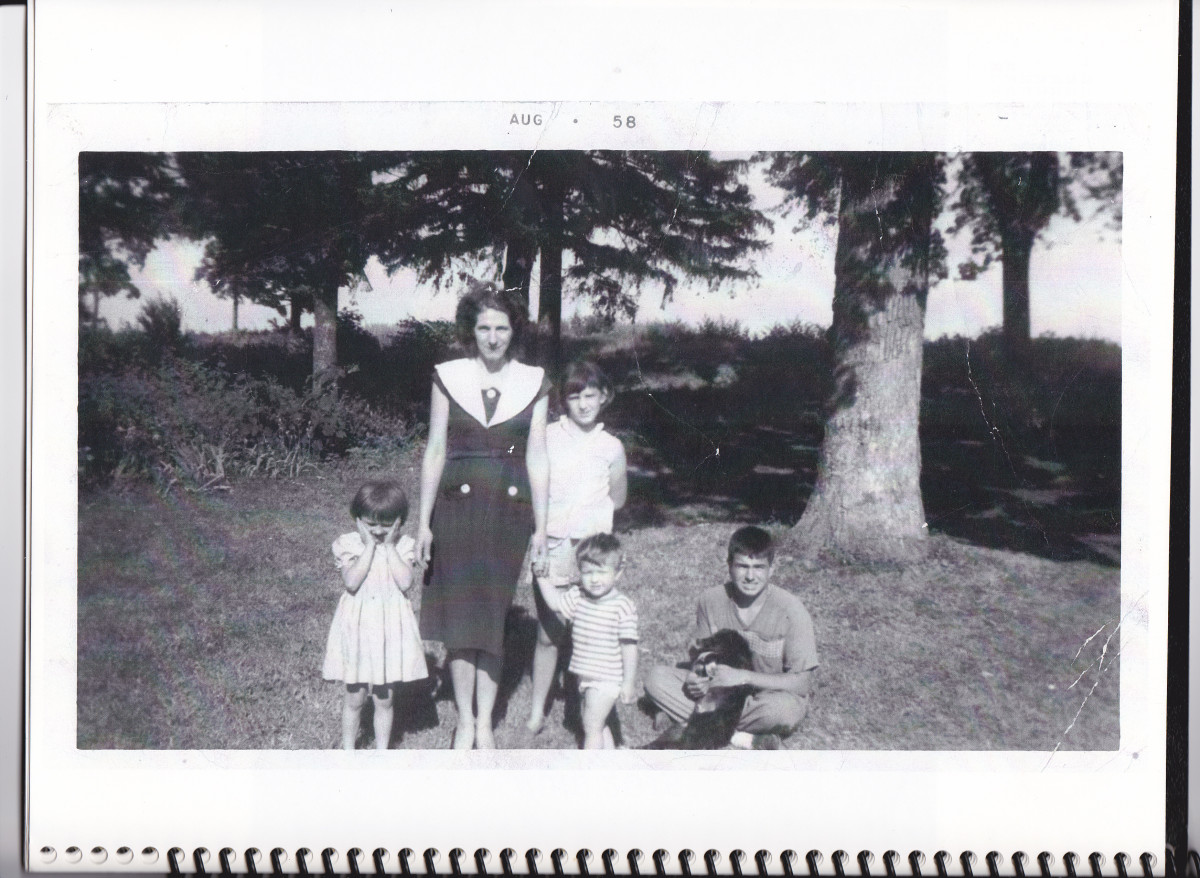The Six Greatest of All Arts-Books & Theatre
Master and Margarita
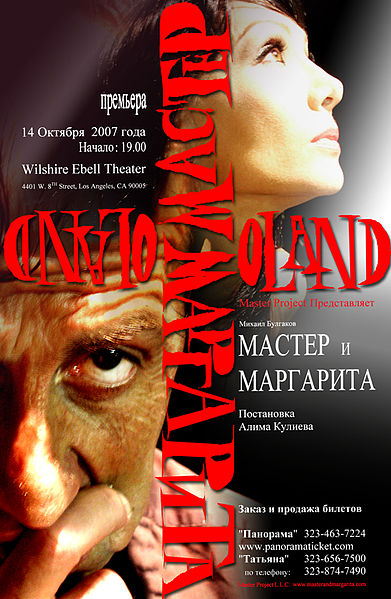
Table of literary influences
Shakespeare
| Dostoevsky
| Kafka
|
|---|---|---|
John keats
| Anton Chekov
| Considerable men of letters of the 20th and 21st century.
|
Alduous Huxley
| Jean-Paul Sartre
| |
John Steinbeck
| Ernest Hemingway
| |
Ray Bradbury..and countless more
| Friedrich Nietzche..and a horde more
|
Executive Summary
According to author and playwright Thornton Wilder, theatre is the greatest of any art form because it brings the immediacy of human relations close at hand. In fusing books and plays in this essay, I wish to introduce writing and play acting, as a whole, as one. Thus, knowing Oedipus Rex or Hamlet first in writ, then stage or vice versa amounts to the same versatile aim: they are both strikingly moving to human senses, primarily sight, only that theatre is more immediate to an actual life lived than books. Thus, even while not doing whole justice to the above opening assertion by the author of Our Town and The Bridge Over San Luis Rey, below is a fused argument that 'books' inclusive of theatre, are undeniably immune to posterity.
The Ending Meets the Beginning Only in Books & Theatre
There are several arguments that unite forth to make books possibly one of the greatest of all arts. These include influence, greatness of an ending being greater than the beginning scenario, prominent infiltration of women writers, and the search for the Holy Grail. There is also the revolutionary aspect of books over other mediums and the long-lasting interest of books in practical matters. In comparison with the movies, many find the ending more interesting than the beginning. Secondly, in all religions, the best of all representations of spiritual mediums is in book form vis-à-vis other arts which manifestly lag behind, technically and as possible media for deep subjects like spirituality. The Bible, Quran, Bagdad Gita and Egyptian scrolls are all part of this apotheosis of greatness. Thirdly, books have a tendency to create revolutions and influence more than any other both proactively and via ideas. Examples include Machiavelli’s political piece, The Prince. Finally, all religious texts and even novels inspire intricate plot forms in other formats like movies.
Pyramid of Influence in Books
More than that, books perhaps also pass the genealogy of influence between artists, or authors, more than other forms. In painting, it seems like each upstart like Monet(with impressionism) and Henri Matisse, father of Fauvism, which was characterized by rawness of color, ‘spontaneity and roughness’(henri-matisse.net, A1), were, more or less spurious experiments that finally bore good. However, with writing, most avant-garde authors of the 20th and early 21st century had all borrowed something or other from past authors because writing a book is serious business that does not, for economic and time reasons, condone raw experimentation. Even when writing his influential sci-fi space opera novel, ‘Necromancer,’ William Gibson did not write the first line ‘the sky…was the color of television,’ (Williamgibsonbooks.com, A1), from the blues. The novel, through furiously original, must have had an influence from earlier books principally Philip K. Dick’s.
In short, books are an intricate web of connections from gifted author to author apprentice. For instance, Dickens influenced Dostoevsky who influenced Freud while Kafka inspired the whole gamut of 20th century writers who came after him. Here is a list and pyramid depicting arguably the three giants of literary influences viz., Shakespeare, Dostoevsky and Kafka:
Considerable authors of the 20th and 21st century
Thus, books earn this second place as the greatest of all arts because influence means that a production is mature, well-researched and meaningful by a chain of connections: simply, via influence, like below.
- Shakespeare’s roll of honor: John Keats (who actually worshipped the Bard by having a marble of the giant of theater in his writing chamber), Aldous Huxley, Ray Bradbury and John Steinbeck (the three of whom have all had titles of their best-loved works picking generously from Shakespeare’s lines). (Shakespeare-online, A1).
- Dostoevsky’s roll of honor: Anton Chekov, Ernest Hemingway, Jean-Paul Sartre, Friedrich Nietzsche (Wikipedia, A1).
- Kafka: more or less all 20th century authors post 1924 whether consciously, subconsciously or via secret admiration.
Books Conquering Holy Grail, Chivalry Lore equals Cervantes’ Impact
Literature, more than any other art, brought themes that endured for a time, inspired millions but crumbled into the cold earth like very revolutions. Cervantes dealt such a blow to chivalric writings about knights-errant of the mediaeval times with his single book, the first and second parts of Don Quixote de la Mancha that such writings ceased in all but word of mouth. But it seems like he still left some aspect that never died out. It is the story of the Holy Grail that has amassed a lot of ramblings in eons of novels. It has also inescapably seeped into the world of cinema to the extent that at one time it seems like it is part of very people’s lives. The story of Knights Templars has arguably been the most long-lasting theme in world literature. It never dies out.
The appearance of Dan Brown’s, The Da Vinci Code, and the controversy and exhaustive falsification surrounding everything the book claimed, should have served as a sensationalist version of Don Quixote in 2003 but it did not. Does this show that since the world still sees a gamut of Knights Templar and Holy Grail books off press that should have died long ago that authors have diminished in their creative value? Or is it just that those brilliant minds are no longer as literary-focused as they used to be and audiences know that if a book falls they can go to the theaters and if that fails movies would serve as well? There is a list of all Holy Grail books starting with the master Umberto Eco’s The Name of the Rose and other fiction all in one website, the Goodreads site, one that can serve as a starting point of how the theme endures in books, still, post Da Vinci Code.
Revolutionary Ideas of Books in Movies
Books are greater than, say, movies, because, the latter borrow ideas from the former. Below is a vivid example, focusing on Carol Reed’s cinema masterpiece, The Third Man.
On style revolution, ‘the screenplay (…came from the author of the novel…who more than just put information creatively down about spies…’but sometimes acted as one.’(Roberbert.com, A1). This shows that if other mediums want their plays to come to life, they not only borrow ideas from men of letters but let them write for their mediums as well (like above where Graham Green wrote the script for the Third Man cinema).
Similar strains of movie-copies-books is in arguably one of the best films I have ever seen, Alfred Hitchcock’s Vertigo, which actually psychologists show to have borrowed ideas of characterization and shots from the Father of Psychology’s (Sigmund Freud’s) writings. In the movie, it appears that the double lead actress’s part was going by the immortal director’s view of psychoanalysis as motherly when, ‘Kim Novak’…so remote from Stewart…passed as innocent, unspoiled and thus inapproachable sexually…just like ‘a mother.’(Sensesofcinema.com, A1). Later, in her double role, Novak appears as approachable, ‘prostitute-like and thus non-motherly and it is only then that Stewart leads her to the apocalyptic end alike in movie and original novel. (senseofcinema.com, A1)
Books are Practical
Men of letters make their books more practical than any other art perhaps by being practitioners of what they preach. The below example will prove why books are the second greatest of all arts going by this head.
Miguel de Cervantes was perhaps the most famous of near escapees in world literature who doubled as men of action by escaping fatal enemy strike in a sea battle before writing his monumental Don Quixote; so did Graham Greene, above, also chance his fate as a man of action in his novel writing days by also practicing what he preached. He was a spy, too.
Ideas, Ideas, Ideas…The Never Ending Storybook
One of the curses of books is that they induce the author to be all about and be about novels, poems, plays and other similar media. In fact, one famous author, John Frazer, had, ‘to move out of his room’ (interestingliterarture.com, A1) from his apartments in London, apparently to let the flooring heave a sigh of relief owing to his accumulated loads of the written material that made the floor sag from the volumes.
According to Anthony Wilson(2006), through his book about the record label, Factory, ‘storybooks’ usually let you in on the story from page one but never let go until they go far more than they promised to give the reader, at first. That is, with all the world of creativity and details at hand, and coffee at the other, imagination is apt to lead to tomes of writing and sometimes irrelevancy.
Books as the Hunger Artist
Books are greater than, say, music or movies because they go hand in hand with hunger and physical morbidity.
Literature plays other dual offices of releasing and incarceration (Ellman, 23) which is similar in a way to being starved. In a word, when someone goes without dainties for days as a show of protest, he or she feels to be free of influence but is, at the same time, feeling under pressure for denying the body its basic need: food. So do writers also feel when they are writing. Many take it to the extreme by considering it as a war against both time and society, and by the very act of finishing a work they will have vindicated themselves on the time/people factor and thus have found release. However, they will have undergone mental and physical pressure, sometimes inclusive of intense hunger, psychological morbidity and spiritual want. It is not surprising that one of Franz Kafka’s major stories is aptly of the title, The Hunger Artist.
Timeline of Writing Can Be Lengthy
Unlike other arts, books are great because of discrepancy between the time of writing and publication dates. They are a great test into an author’s humility to suffer rejection and then acceptance, sometimes posthumously. Only paintings especially of avant-garde artists, which have to undergo scrutiny through academies of art and recognized studios, if the painter will not have to sell them in the street at cheap value, can compare with the storyline of writing and publishing books.
Below is a note on the greatest name in writing: William Shakespeare.
Some of the major works of the Bard of Avon have a large discrepancy between writing and publication dates. For instance, The Comedy of Errors has rough penning dates of between 1589 and 1594 but did not go under publication until seven years after Shakespeare’s death. The same applies to The Two Gentlemen of Verona and Henry VI Part 1, all of which saw the light in book form in the folio of 1623. Yet some works like Henry the Fifth (written 1599 and published 1600) and Hamlet, written 1600 and undergoing publication, 1603, were first movers. (bardweb.net, A1)
Therefore, the world of books need not have the final word on the day of authorial final proofs. Rather, to the author’s disquiet, especially if he or she considers it a great work, it can only suffer acknowledgement to mortality after publication and not before.
Finally, literature is, apart from oil paintings, great in introducing egoists and stylists.
The world of fiction had its greatest practitioner of the mind in ego in the name of Ayn Rand. Her monumental readers’ favorites but critics’ anathemas include the influential Atlas Shrugged about a selfish industrialists’ paradise in Colorado where they refuse to supply the rest of the world with their hard-earned ware, like oil. John Galt, Taggart and crew said that they would ‘stop the motor of the world’ (Rand, 2005 edition) and did just that in a strangely unique way that seems more abstract than real. There was also The Fountainhead which explored an egotistic young architect’s dilemma with a world that defies his very brilliant ideas on building tall structures.
Stylists include such names as Ernest Hemingway who introduced the curt, precise story. Crime fiction writers like Raymond Chandler inaugurated a fiction that movies copied in the film noire tradition. The Girl with the Dragon Tattoo is a fine example of how style can get influence from analytical and psychological writings.
Finally, women have made books even greater than oil paintings in one aspect. It is only in writing that famous names have excelled and uplifted the female figure in the artistic community.
Even as we move to the third greatest of all arts, classical music, read the first part of the greatest arts of them all in this series right here.
References
Ellman M., (1993)The Hunger Artists : Starvation. Writing & Imprisonment, Virago.
‘Shakespeare Plays Timeline.’ From http://www.bardweb.net/plays/timeline.html
‘Great Movie, The Third Man.’ From http://www.rogerebert.com/reviews/great-movie-the-third-man-1949
‘Fyodor Dostoevsky.’ From https://en.wikipedia.org/wiki/Fyodor_Dostoyevsky
Theodore P.,. ‘Back to Freud! Superbitch! Alfred Hitchcock’s 50-Year Obsession with Jack the Ripper and the Eternal Prostitute. A Psycho-analytic Interpretation’ from: http://sensesofcinema.com/2013/book-reviews/back-to-freud-superbitch-alfred-hitchcocks-50-year-obsession-with-jack-the-ripper-and-the-eternal-prostitute-a-psycho-analytic-interpretation-by-theodore-price/
Rand, A., (2005) ‘Atlas Shrugged,’ Penguin Publishing Group, 1088pp.
‘Matisse: Life and Painting:’ From http://www.henri-matisse.net/
‘Necromancer, Excerpt, Chapter 1:’ From http://www.williamgibsonbooks.com/books/neuromancer.asp
‘Shakespeare Influence on other Artists.’ From http://www.shakespeare-online.com/biography/shakespearewriter.html
For further comparative reading on books and other arts, I recommend:
The Price of Greatness: Resolving the Creativity and Madness Controversy 1st Edition, by Arnold M. Ludwig.


